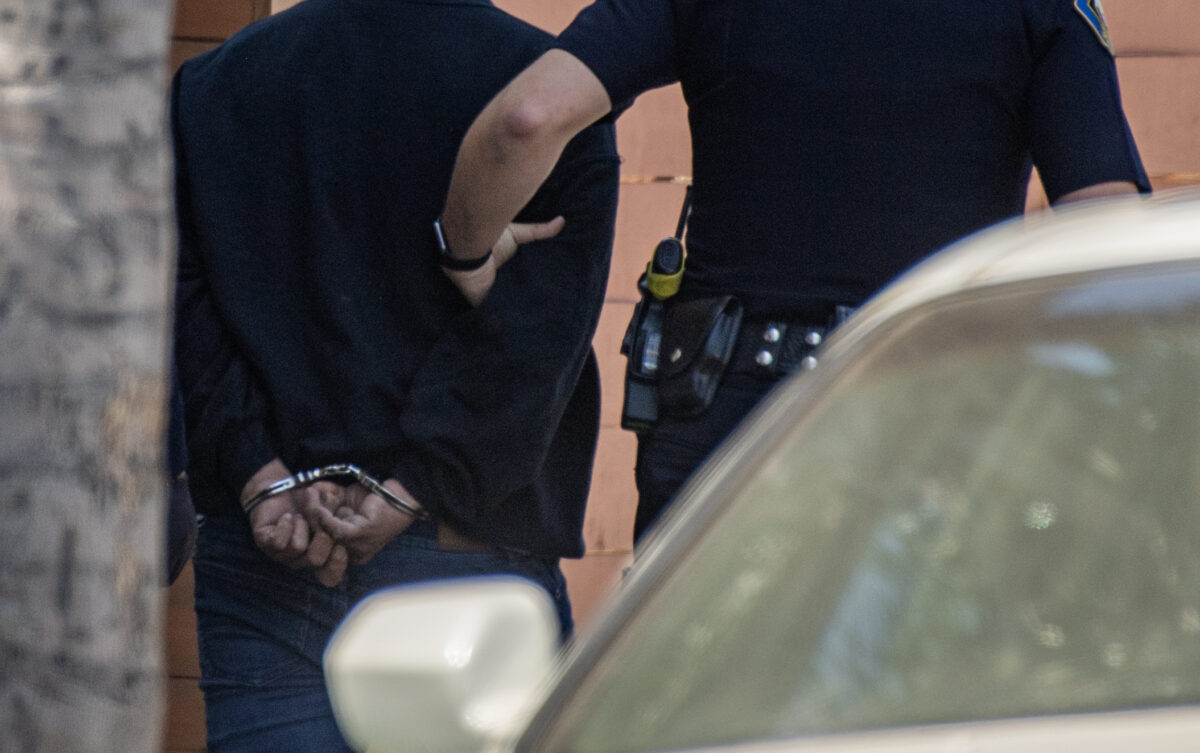A police oversight body in Long Beach says the LBPD should make sure its officers investigate thoroughly instead of arresting both parties during violent domestic incidents where the perpetrator isn’t immediately obvious.
The recommendation was one of a dozen that the Long Beach Office of Police Oversight submitted to the department in a report based on a review of 100 recent complaints against officers.
In those complaints, which covered closed internal affairs investigations within the last 18 months, the Oversight Office said it found three times when Long Beach police arrested both the victim and aggressor after they told conflicting stories about a domestic dispute.
Although the number “seems very small,” Francine Kerridge, director of the Office of Police Oversight, said her staff plans to “do our due diligence to see if the issue is bigger” than just the people who filed complaints.
“We have heard officers make comments to the effect of ‘let the courts sort it out,’” the report said. “This approach to assaults is unacceptable. Having a practice of arresting reporting victims when the suspect lies about the victim’s involvement could dissuade the reporting of crimes.”
In the three cases identified by her team, Kerridge said that if officers “had just done a little bit more investigation, they could have determined that one of the parties was not being honest.”
Potential harms
It’s crucial the LBPD quickly fix this to avoid further harming victims or disuading people from calling police, according to local domestic violence shelters.
Arresting the wrong person “can be deeply traumatizing and can reinforce the very fear and control they are trying to escape,” said Kent Wallace-Meggs, executive director of WomenShelter of Long Beach.
When police are called about domestic violence, it’s often a “race to the phone” between the aggressor and the victim, said Cynthia Carrasco, senior staff attorney for Rainbow Services shelter in San Pedro. She has heard from clients who were locked in a car while their abusive partner called police to lay the blame on them.
Emotionally charged situations like this are difficult to investigate, especially if there’s a language barrier, Carrasco acknowledged, and officers may be well-intentioned by “trying to be neutral, but the effect has been a long-term chilling of judicial remedy access.”
If law enforcement officers don’t take the time to determine which party is the aggressor, it robs the victim of a chance to obtain an emergency protective order from a judge, which grants five to seven days of protection against a domestic partner who is an immediate threat, Carrasco said.
That reprieve allows victims to file a domestic violence restraining order or a civil harassment restraining order, which can both last up to five years.
When both the abuser and the victim are arrested, it inaccurately “creates a narrative where it’s a joint conflict,” she said.
If the couple has children, an arrest of both parents could also trigger an investigation by the Los Angeles County Department of Children and Family Services. Arrests also show up on background checks, which can eliminate a person’s eligibility to receive an immigration visa, Carrasco said.
As the second biggest city in Los Angeles County with its own police department and city government, Long Beach is uniquely positioned to create better options for domestic violence survivors, Carrasco said.
The right system could hit at the underlying causes of domestic violence, which can include substance abuse, anger management, job loss and evictions, Carrasco said.
Long Beach used to have a court dedicated solely to handling domestic violence cases. Carrasco wants that court reinstated.
“Access to justice right now in Long Beach is being chilled and something like that can end with very powerful people just saying, ‘This is how we fix it,’” Carrasco said.
Next steps
A group of police oversight commissioners appointed by the mayor agreed with the report’s recommendations at their meeting Wednesday.
This report was the second since the Oversight Office was created in 2023. Its first report focused on improving how the department interacts with the families of people killed by police.
It’s up to the Police Department to decide if and how any of the recommendations will be implemented. They have agreed to adopt all six of the commission’s prior recommendations.
Nadia Tushnet, the commission’s chair, requested a follow-up report on which recommendations the Police Department has already acted on and which ones it plans to incorporate from the latest set.
“Implementation is everything,” Tushnet said.
The LBPD told the Long Beach Post it is “reviewing the presentation and recommendations made to the Police Oversight Commission, after which we will evaluate if further action is needed.”
Editor’s note: This article was updated to show the LBPD agreed to adopt the commission’s prior recommendations.

